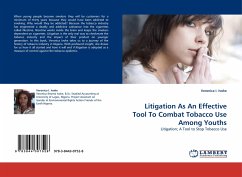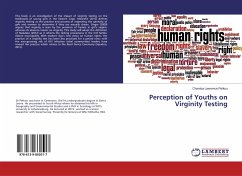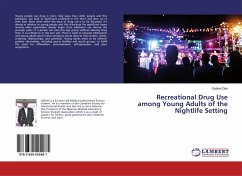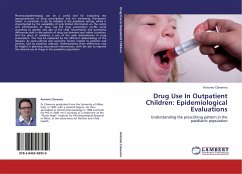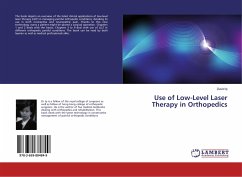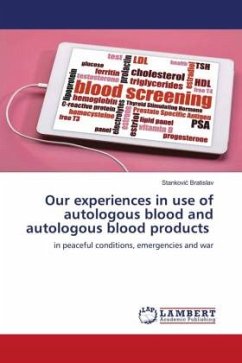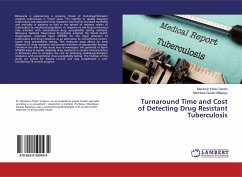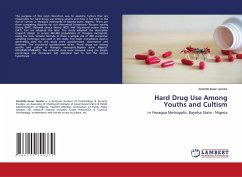
Hard Drug Use Among Youths and Cultism
in Yenagoa Metropolis, Bayelsa State - Nigeria
Versandkostenfrei!
Versandfertig in 6-10 Tagen
27,99 €
inkl. MwSt.

PAYBACK Punkte
14 °P sammeln!
The purpose of this work therefore was to examine factors that are responsible for hard drugs use among youths and how it has help in the rise of cultism in Yenagoa metropolis of Bayelsa state, Nigeria. There are three competing theories for our theoretical framework- Routine activity theory (RAT), Rational choice theory (RCT) and Situational action theory (SAT), but we adopted the later. The study adopted the descriptive research design to survey 482,462 populations of Yenagoa metropolis, using the Taro- Yamane formula to draw a sample size of 400; purposive sampling technique was used in the...
The purpose of this work therefore was to examine factors that are responsible for hard drugs use among youths and how it has help in the rise of cultism in Yenagoa metropolis of Bayelsa state, Nigeria. There are three competing theories for our theoretical framework- Routine activity theory (RAT), Rational choice theory (RCT) and Situational action theory (SAT), but we adopted the later. The study adopted the descriptive research design to survey 482,462 populations of Yenagoa metropolis, using the Taro- Yamane formula to draw a sample size of 400; purposive sampling technique was used in the study. The major instruments used in generating data for this study were questionnaire, observation and interview. The structured questionnaire titled: "Hard drugs use among youths and cultism in Yenagoa metropolis,Bayelsa state- Nigeria" (HDUAYACIYMBSNQ). The collected data were analysed using the simple percentage and Chi-square (x2) statistical tool to test the various hypotheses.



